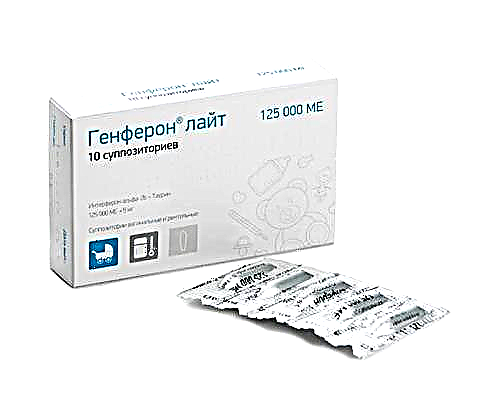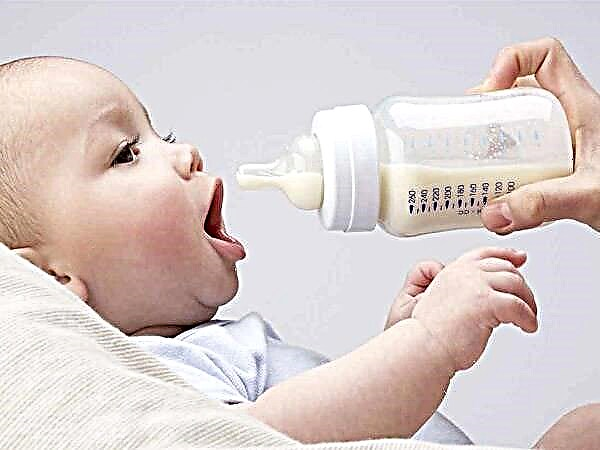Plasticine feces in a baby is not always a reason to sound the alarm. You need to know what symptoms are considered dangerous, and what is a reaction to a change in diet. The baby's digestive system is just being formed, adapting to the new world, the task of the parents is to help the baby get used to it without harm to health.

Newborn
Normal consistency of feces in infants
The ideal stool in infants has a mushy consistency and a light brown color. It should not be completely absorbed into the diaper.
Note! The chair becomes more shaped with the start of complementary feeding. Depending on the food consumed, its shade changes, food pieces may appear.
Newborns excrete meconium, it is always sticky and thick, reminiscent of motor oil. Even his color is black, it shouldn't scare you. It appears almost immediately after the crumbs are born and consists of mucus, water, hair, everything that was digested during intrauterine life. Then the newborn's stool changes in response to mother's milk or formula, and becomes more mushy.
Possible changes in the child's stool
In infants, the enzyme and digestive systems are just forming, the appearance of feces changes from birth to a year. So, in the crumbs of the first months of life, frothy stools may appear if the mother has eaten flour or sweets. As soon as she changes her diet, the baby will be fine. If dairy products predominate in the child's diet, then the feces are lighter, as soon as meat appears, it becomes dark.
Greenish stools are allowed if the baby is not worried about:
- he is active, mobile;
- sleeps peacefully;
- temperature is normal;
- there are no other alarming symptoms.
So, a green tint can appear when switching from breastfeeding to artificial feeding or when the selected formula is not suitable for the baby. If this was noticed once, and then the stool became normal, of the usual color and consistency, you should not panic. When the condition drags on, it is worth consulting a doctor, this may indicate, for example, dysbiosis.
During the growth of the teeth, the stool of babies becomes more liquid, some are worried about diarrhea. It is worth checking if the baby's gums are swollen. If, in addition, he pulls everything into his mouth, salivation has increased significantly, it is worth waiting for a few days. When a tooth is hatched, the stool is normalized.

Babies are teething
Dependence on the type of feeding
In bottle-fed babies, stools are thicker and more viscous. Plus, formula-fed babies usually go to the bathroom once a day, as if on schedule. Children who consume their mother's milk have a higher frequency of bowel movements. In addition, in "artificial" stools often acquire a green tint, usually due to the composition of the mixture, namely the high iron content. In breastfed crumbs, the feces become green when milk is poorly absorbed or when the number of pathogenic microflora exceeds the useful one.
White blotches can appear in all children:
- babies drinking milk may not fully absorb it;
- "Artificial" are not yet accustomed to the mixture, or the parents stirred it badly, leaving lumps.
Causes of sticky stools in infants
If a child has sticky feces, this does not necessarily indicate that he or she is sick. There may be several reasons for this:
- Food unusual for a child. This may be due to the fact that the mother ate a new product, or the baby received a portion of an unfamiliar mixture;
- Not drinking enough fluids throughout the day. "Artificials" must be supplemented with water in order to facilitate the assimilation of the mixture;
- Increased gas production, which is a harbinger of constipation;
- Lactase deficiency;
- Lack of nutrients in the body of the crumbs;
- Mom's too fat milk.
Note! If the stool sticks to the diaper and is hard to wash off the priests, but the baby feels good, this is not considered a pathology. When a child grows, his weight increases, he sleeps calmly and sweetly, eats with appetite, there is no need to worry.
Associated Symptoms Indicating Disease
When a child has feces like plasticine, you should consult a doctor if the following symptoms appear:
- There are streaks of blood in the stool, or it is black;
- The child becomes lethargic, capricious, begins to cry for no reason, his temperature rises;
- In large quantities, mucus appears in the feces, an unpleasant odor occurs.
If sticky stools persist for a long time, during which the baby does not gain weight, you should be alert. Usually in such cases, a coprogram is prescribed to check the enzymatic activity of the intestine. Perhaps the baby has a disturbed fat metabolism, which the doctor will establish after the results of the analysis and examination.

Child at the doctor's appointment
Komarovsky about feces as plasticine
Komarovsky urges not to delve into the children's chair, trying to find something dangerous and abnormal. Due to the immaturity of the intestines, the baby's feces can be anything, even green, foam and mucus, if they are not always present, but are noticeable in small volumes, should not be scary. The main thing to look out for is a putrid smell and traces of blood.
You also need to assess the baby's condition: if he is vigorous, active, smiling, eats with appetite and sleeps well, there is no need to invent diseases for him. You can touch his belly, if it is soft, then most likely the baby has no problems, especially if his weight is growing regularly.
Complications and consequences
Often, plasticine stool provokes constipation. The child cannot go to the toilet on his own, he pushes, screams, feces begin to come out in small portions. In addition to visible discomfort, this condition can lead to:
- Weight loss;
- Impaired intestinal absorption of nutrients.
Long-term constipation can contribute to the intoxication of the body, so measures must be taken to improve the baby's stool. Lack of stool with insufficient water intake accompanies dehydration. After all, it is from a lack of fluid that problems with defecation often arise. Babies on gv are usually not afraid, because milk consists of 80% of water, children on willows must be supplemented with water.
In any case, if plasticine feces remain in the baby for a long time, it is necessary to visit a doctor. Self-medication can harm the baby. The doctor will determine if the child has enough enzymes, if necessary, will send for an ultrasound of the abdominal cavity. If a pathology that needs to be treated is established, he will prescribe a course of drugs allowed for the baby, and determine the correct dosage.
Preventive measures
So that the baby does not have a chair like plasticine, you need to be careful about nutrition:
- If a child eats only mother's milk, then it is she who should eat healthy food. You do not need to adhere to diets, but it is better to eat prohibited foods with caution;
- When the baby is on artificial or mixed feeding, the choice of the mixture must be approached with responsibility. It is not recommended to constantly change them. You need to make the transition gradually, replacing feedings in turn. The same applies to the termination of HW and the introduction of adapted mixtures;
- Complementary feeding must be started in a timely manner, according to age recommendations, using permitted products. So, with the introduction of adult food, children first get acquainted with green vegetables, then move on to dairy-free cereals.
Correct drinking regime can help to avoid many digestive problems.
Note! Also, the child needs sufficient physical activity, gymnastics is often used as a way to treat colic, constipation.

Gymnastics
To understand why a baby has feces like plasticine, you first need to revise the diet. A single detection of such a consistency does not lead to problems, the chronic nature causes the child a lot of inconvenience, provokes complications. A gastroenterologist will help determine the cause of the stool disorder and prescribe treatment.



